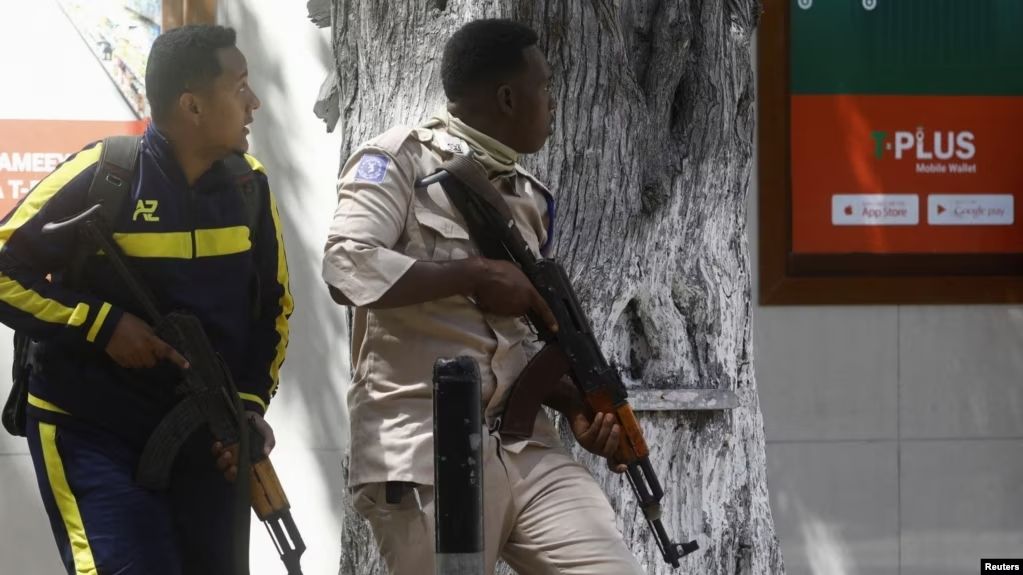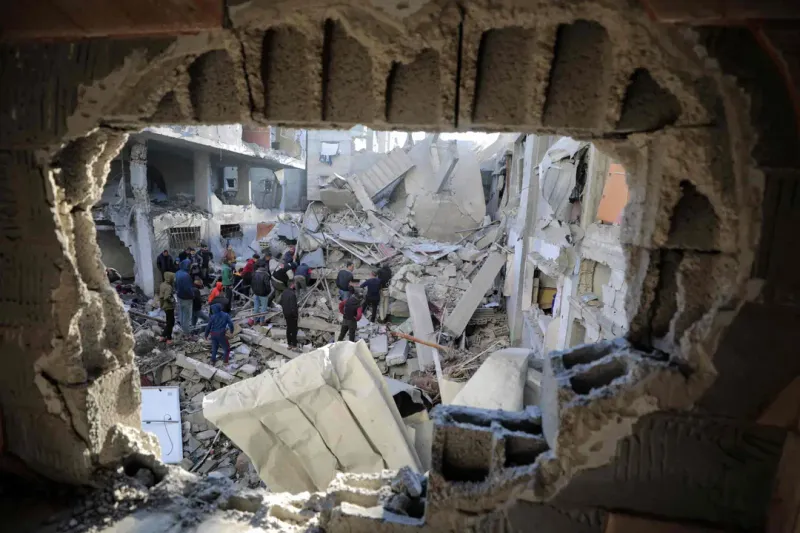Somalia: Al-Shabaab Militants Storm Govt Office; At Least 5 Dead
On Sunday, at least five civilians were killed and 16 others injured when fighters from the al-Shabaab militant group stormed a regional government office in the capital Mogadishu, the Somali Information Ministry said.

Facts
- On Sunday, at least five civilians were killed and 16 others injured when fighters from the al-Shabaab militant group stormed a regional government office in the capital Mogadishu, the Somali Information Ministry said.
- The attack by the al-Qaeda-linked group reportedly began with a suicide bombing before the armed men entered the building and exchanged fire with security forces.
- Six al-Shabaab fighters were reportedly killed during the attack on the Banadir Regional Administration building, which houses the office of Mogadishu's mayor. The complex is located in a well-guarded quarter of the capital, about 1.5 km from the president's office.
- Meanwhile, al-Shabaab claimed that 34 people were killed in the attack, which Mogadishu condemned as "barbaric," including civil servants, administrators, soldiers, and officers.
- The latest attack came after the government said at least seven soldiers were killed Friday in an al-Shabaab raid on a Somali army camp in the central village of Galcad, which was recently recaptured from the group.
- In a statement on Saturday, the US Africa Command (AFRICOM) said it launched a "collective self-defense strike" that killed about 30 al-Shabaab fighters following the Galcad attack, which it claimed involved more than 100 militants.
Sources: Al Jazeera, Associated Press, Reuters, VOA, US, and CNN.
Narratives
- Establishment-critical narrative, as provided by MWI. Al-Shabaab's recent attacks prove that the extremist group remains resilient and Africa's most capable terrorist organization. Even international support, a clan rebellion, and both a popular backlash and recent US military re-engagement have failed to change the fact that al-Shabaab maintains territorial control over vast swaths of central and southern Somalia. As long as there are no serious negotiation efforts and many Somalis and non-Somalis benefit more from war than peace, there is no end to the forever war against al-Shabaab.
- Pro-establishment narrative, as provided by Reporter Ethiopia. The latest attacks are a setback, but they cannot disguise the fact that the Mohamud government has achieved considerable success in the fight against al-Shabaab in recent months. Added to this are international support and growing resistance from clans and the enraged population. Therefore, it is surely no coincidence that al-Shabaab now suddenly seems open to negotiating with the government. Mogadishu is on the right track, and there is now every reason to hope that the extremists won't be able to withstand external and internal pressure much longer.






